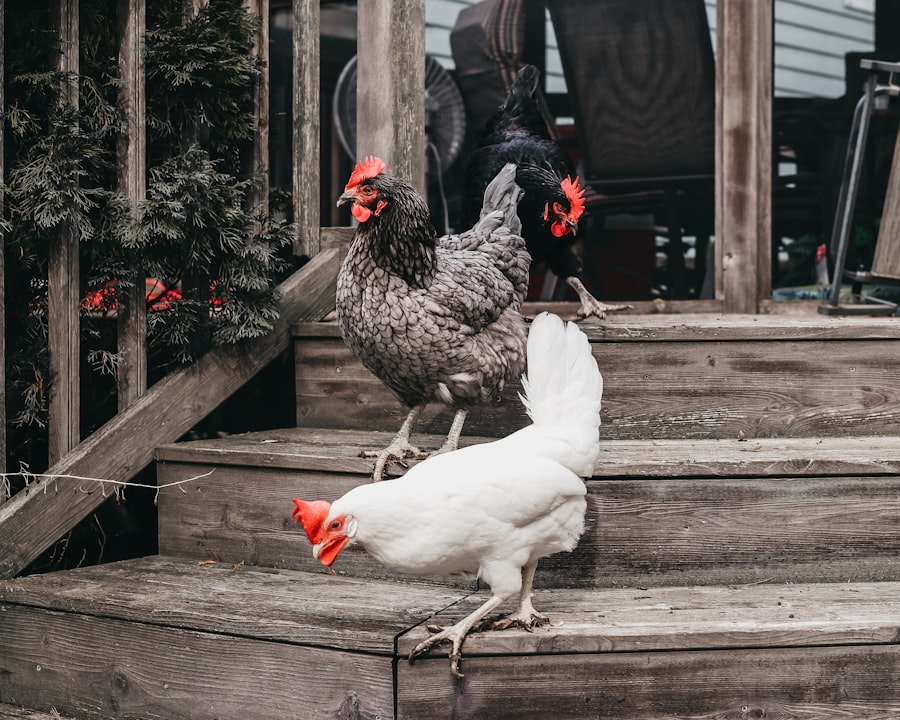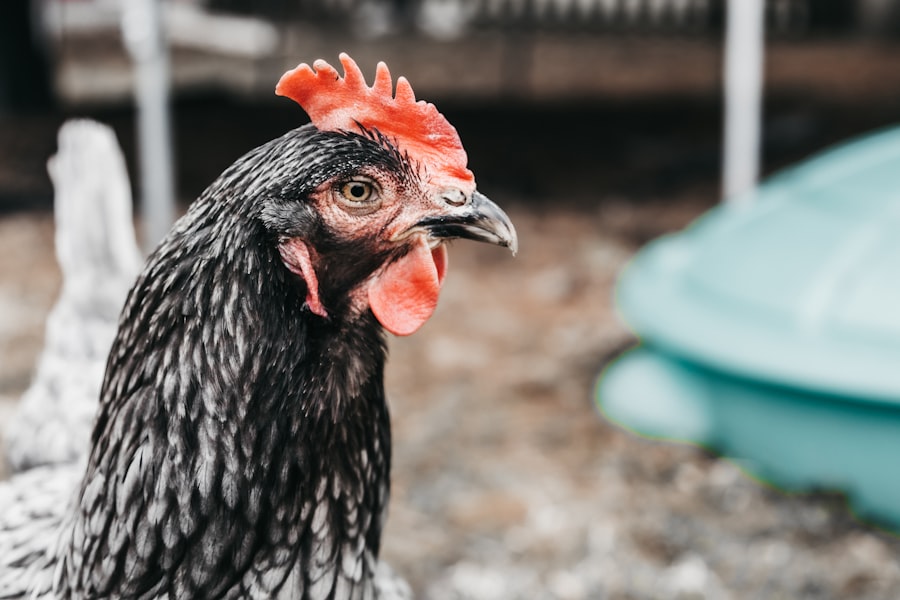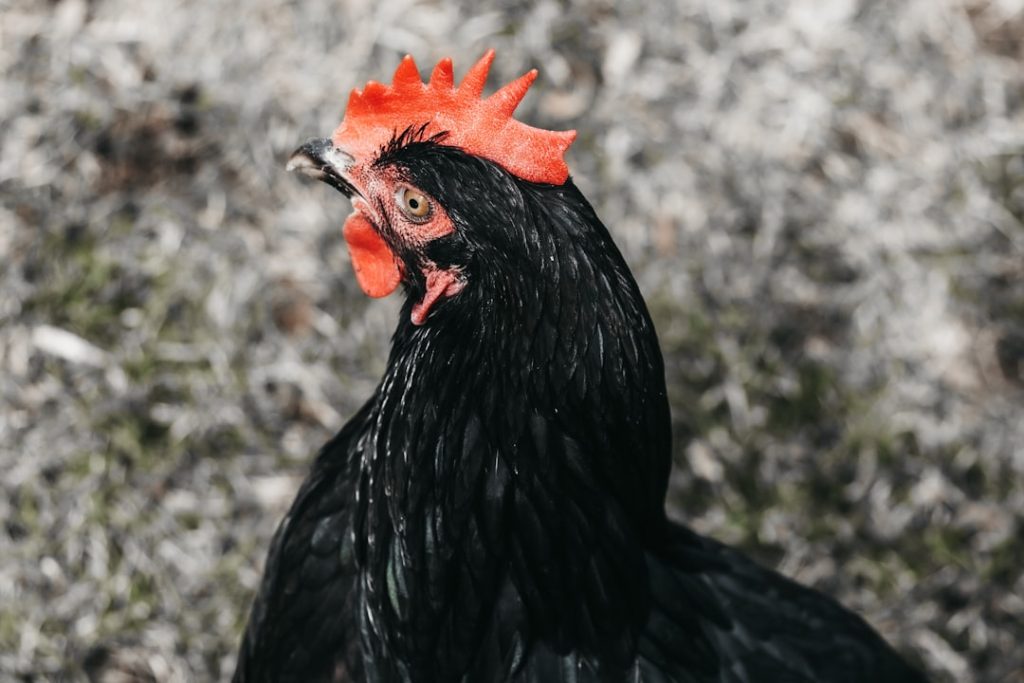Foxes are cunning and stealthy predators that pose a significant threat to chicken coops. Understanding fox behavior is essential for developing effective protection strategies. Foxes are opportunistic hunters with high intelligence and adaptability, making them challenging adversaries for chicken owners.
Primarily nocturnal, foxes are most active at night. They possess acute senses of sight, smell, and hearing, enabling them to easily locate potential prey like chickens. Foxes are skilled diggers, capable of burrowing beneath fences and into coops.
They are also agile climbers, able to scale various barriers with ease. To effectively safeguard chickens from foxes, it is crucial to comprehend their behavior and adjust coop security measures accordingly. Recognizing foxes’ nocturnal habits, keen senses, and agility allows for the implementation of targeted strategies that minimize the risk of attacks on chickens.
Table of Contents
- 1 Securing the Chicken Coop
- 2 Using Deterrents to Keep Foxes Away
- 3 Implementing a Guard Animal
- 4 Creating a Secure Outdoor Run for the Chickens
- 5 Removing Attractants from the Property
- 6 Regularly Inspecting and Maintaining the Chicken Coop
- 7 FAQs
- 7.1 What are some effective ways to keep foxes away from chickens?
- 7.2 What type of fencing is best for keeping foxes out of a chicken coop?
- 7.3 Are there any natural deterrents for foxes?
- 7.4 What should I do if I spot a fox near my chicken coop?
- 7.5 Are there any specific breeds of chickens that are more resistant to fox attacks?
Key Takeaways
- Foxes are intelligent and adaptable animals that can pose a threat to chicken coops.
- Securing the chicken coop with sturdy fencing and locks is essential to prevent foxes from gaining access.
- Using deterrents such as motion-activated lights and sprinklers can help keep foxes away from the coop.
- Implementing a guard animal, such as a dog or a donkey, can help protect the chickens from foxes.
- Creating a secure outdoor run for the chickens with a roof and buried fencing can provide additional protection from foxes.
- Removing attractants such as food scraps and garbage from the property can help deter foxes from coming near the coop.
- Regularly inspecting and maintaining the chicken coop and surrounding area is important for identifying and addressing any potential vulnerabilities to fox attacks.
Securing the Chicken Coop
Inspecting the Perimeter
Start by inspecting the perimeter of the coop for any potential entry points such as gaps in fencing, loose boards, or holes in the ground. These should be promptly repaired or reinforced to prevent foxes from gaining access to the coop.
Reinforcing the Coop
Consider installing hardware cloth or welded wire mesh around the perimeter of the coop to prevent foxes from digging underneath or squeezing through gaps in the fencing. This material should be buried at least 12 inches into the ground to deter digging and extend at least 3 feet above ground level to prevent climbing.
Securing Doors, Windows, and Roof
Additionally, ensure that all doors and windows are securely latched and reinforced to prevent forced entry by foxes. Another important aspect of securing the chicken coop is providing a secure roof to prevent foxes from gaining access from above. Foxes are agile climbers and may attempt to enter the coop by scaling walls or fences, so it is crucial to have a secure roof in place to deter this behavior.
By taking these proactive measures to secure the chicken coop, you can significantly reduce the risk of fox predation and provide a safe environment for your chickens.
Using Deterrents to Keep Foxes Away

In addition to securing the chicken coop, using deterrents can be an effective strategy for keeping foxes away from your property. There are several types of deterrents that can be used to discourage foxes from approaching the chicken coop and reduce the risk of predation. One common deterrent is the use of motion-activated lights and sound devices.
These can startle and deter foxes when they approach the coop, making them less likely to attempt an attack on your chickens. Another effective deterrent is the use of scent-based repellents. Foxes have a keen sense of smell, so using strong-smelling substances such as predator urine or ammonia-soaked rags around the perimeter of the coop can help deter them from approaching.
Additionally, there are commercial fox repellent sprays available that can be applied to the coop and surrounding areas to create a barrier that foxes will find unpleasant. Another option for deterring foxes is the use of physical barriers such as fencing or netting. Electric fencing can be an effective deterrent for foxes, delivering a mild shock when they attempt to approach the coop.
This can effectively discourage them from attempting to breach the perimeter. Netting can also be used to cover outdoor runs or enclosures, providing an additional layer of protection against aerial attacks by foxes. By using a combination of these deterrent methods, you can create an environment that is unappealing to foxes and reduce the likelihood of predation on your chickens.
It is important to regularly inspect and maintain these deterrents to ensure they remain effective in keeping foxes away from your property.
Implementing a Guard Animal
Implementing a guard animal can be an effective way to protect your chickens from fox predation. Certain animals have natural instincts to protect smaller livestock such as chickens and can serve as a deterrent to potential predators like foxes. One popular choice for a guard animal is a livestock guardian dog, which is bred specifically for protecting livestock from predators.
Livestock guardian dogs are known for their loyalty, intelligence, and protective nature, making them an ideal choice for guarding chickens from foxes. These dogs are trained to patrol the perimeter of the property and deter potential threats through their presence and vocalizations. Their mere presence can be enough to discourage foxes from approaching the chicken coop, reducing the risk of predation.
Another option for a guard animal is a donkey or llama, both of which have natural instincts to protect smaller animals from predators. Donkeys are known for their strong territorial instincts and will actively defend their territory against potential threats such as foxes. Llamas are also effective guard animals, using their size and vocalizations to deter predators from approaching the chicken coop.
By implementing a guard animal on your property, you can provide an additional layer of protection for your chickens and reduce the risk of fox predation. It is important to carefully select and train a guard animal that is well-suited to your specific property and livestock needs in order to maximize its effectiveness in protecting your chickens.
Creating a Secure Outdoor Run for the Chickens
Creating a secure outdoor run for your chickens is essential in providing them with access to fresh air and exercise while minimizing the risk of fox predation. An outdoor run allows chickens to roam freely while remaining protected from potential predators such as foxes. When designing an outdoor run, it is important to prioritize security by implementing measures that prevent unauthorized entry by foxes.
Start by ensuring that the perimeter of the outdoor run is securely fenced with hardware cloth or welded wire mesh that extends at least 3 feet above ground level and is buried at least 12 inches into the ground. This will prevent foxes from climbing over or digging under the fencing to gain access to the chickens. Additionally, consider covering the top of the outdoor run with netting or wire mesh to prevent aerial attacks by foxes.
It is also important to provide adequate shelter within the outdoor run where chickens can seek refuge if they sense a potential threat such as a fox. This can be in the form of a secure coop or sheltered area within the run that provides protection from predators while still allowing chickens to move freely. By creating a secure outdoor run for your chickens, you can provide them with a safe environment to roam while minimizing the risk of predation by foxes.
Removing Attractants from the Property

Secure Garbage and Compost
Start by securing garbage cans and compost bins to prevent access by foxes, as these can provide easy sources of food for them.
Remove Hiding Spots
Additionally, it is important to remove any potential hiding spots on your property where foxes may seek shelter or build dens. This can include clearing brush piles, sealing off crawl spaces under buildings, and removing debris that could provide cover for foxes. By eliminating these potential hiding spots, you can make your property less appealing to foxes and reduce the likelihood of them preying on your chickens.
Secure Food and Water Sources
It is also important to secure any sources of food or water for your chickens in order to minimize attractants for foxes. This can include using secure feeders and waterers that cannot be easily accessed by foxes, as well as promptly removing any spilled feed or water that may attract them. By removing attractants from your property, you can create an environment that is less appealing to foxes and reduce the risk of predation on your chickens.
Regularly Inspecting and Maintaining the Chicken Coop
Regularly inspecting and maintaining the chicken coop is essential in ensuring that it remains secure against potential threats such as fox predation. Over time, wear and tear on fencing, doors, and other security measures can create vulnerabilities that may allow foxes to gain access to the coop. By conducting regular inspections and maintenance, you can identify and address any issues before they compromise the security of the coop.
Start by inspecting the perimeter fencing for any signs of damage or wear that may allow foxes to breach it. This can include loose boards, gaps in fencing, or areas where digging may have compromised the integrity of the barrier. Promptly repair or reinforce any areas that show signs of weakness in order to maintain a secure perimeter around the coop.
It is also important to regularly inspect doors, windows, and other entry points for signs of wear or damage that may allow unauthorized entry by foxes. Ensure that all latches are secure and functioning properly, and replace any worn or damaged hardware as needed. Additionally, check for signs of digging around the perimeter of the coop that may indicate attempts by foxes to gain access.
By regularly inspecting and maintaining the chicken coop, you can ensure that it remains secure against potential threats such as fox predation. This proactive approach will help minimize the risk of attacks on your chickens and provide them with a safe and secure environment in which to thrive.
If you’re looking for ideas on how to keep your chickens safe from foxes, you might want to check out this article on large chicken coop ideas from Poultry Wizard. They offer some great tips on how to design a coop that will keep your chickens safe from predators like foxes. https://poultrywizard.com/keeping-chickens/large-chicken-coop-ideas/
FAQs
What are some effective ways to keep foxes away from chickens?
Some effective ways to keep foxes away from chickens include installing secure fencing, using motion-activated lights or sprinklers, and keeping a livestock guardian animal such as a dog or llama.
What type of fencing is best for keeping foxes out of a chicken coop?
The best type of fencing for keeping foxes out of a chicken coop is hardware cloth or welded wire fencing with small openings (no larger than 1 inch) that extends at least 18 inches below the ground and 6 feet above the ground.
Are there any natural deterrents for foxes?
Some natural deterrents for foxes include using strong-smelling substances such as predator urine or citrus peels, as well as planting thorny bushes or creating noise disturbances around the chicken coop.
What should I do if I spot a fox near my chicken coop?
If you spot a fox near your chicken coop, it’s important to act quickly to scare it away by making loud noises, using bright lights, or spraying it with water. It’s also important to reinforce the security of your coop to prevent future visits.
Are there any specific breeds of chickens that are more resistant to fox attacks?
While no breed of chicken is completely immune to fox attacks, some breeds such as the Rhode Island Red, Sussex, and Orpington are known for being more alert and better at defending themselves against predators.
Meet Walter, the feathered-friend fanatic of Florida! Nestled in the sunshine state, Walter struts through life with his feathered companions, clucking his way to happiness. With a coop that’s fancier than a five-star hotel, he’s the Don Juan of the chicken world. When he’s not teaching his hens to do the cha-cha, you’ll find him in a heated debate with his prized rooster, Sir Clucks-a-Lot. Walter’s poultry passion is no yolk; he’s the sunny-side-up guy you never knew you needed in your flock of friends!







